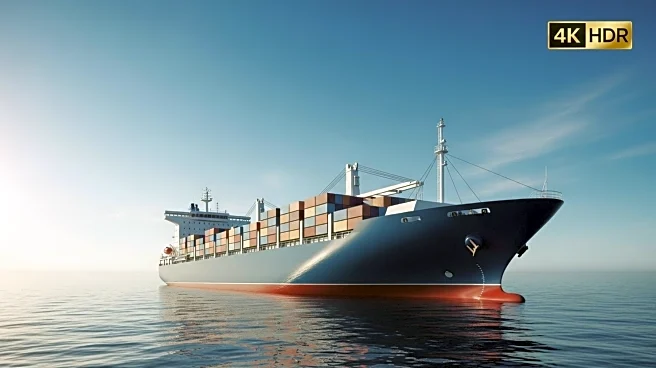What's Happening?
Transport Minister Anthony Loke has highlighted a critical shortage of local professionals in Malaysia's shipping sector, emphasizing the need for immediate action to address this issue. Currently, nearly 40% of ship crews in Malaysia are foreign nationals, underscoring the necessity for qualified local seafarers to fill these roles. Loke pointed out that the maritime field offers promising career prospects with high earning potential, yet interest in seafaring careers remains low compared to countries like the Philippines and Indonesia. He advocated for increased awareness campaigns, workshops, and community programs to engage young people and their parents. Additionally, Loke noted the importance of safety for female crew members, with shipping companies enforcing strict Codes of Conduct to ensure their protection. He urged local shipping companies to sponsor students at the Malaysian Maritime Academy (Alam) and provide mandatory practical training aboard ships to strengthen the local workforce.
Why It's Important?
The shortage of local professionals in Malaysia's shipping industry has significant implications for the country's economic and maritime sectors. By relying heavily on foreign nationals, Malaysia risks losing potential economic benefits that could arise from a robust local workforce. Addressing this shortage is crucial for enhancing the country's maritime capabilities and ensuring sustainable growth in the sector. The call for increased sponsorship and training opportunities for local cadets could lead to a more skilled and diverse workforce, potentially boosting Malaysia's competitiveness in the global shipping industry. Furthermore, the emphasis on safety and inclusion of female crew members reflects broader societal shifts towards gender equality and workplace safety, which are essential for attracting a diverse range of talent to the industry.
What's Next?
Transport Minister Loke's call to action may prompt local shipping companies to increase their investment in training and sponsorship programs for aspiring seafarers. This could lead to a rise in the number of local professionals entering the maritime sector, thereby reducing reliance on foreign nationals. Additionally, the focus on safety and inclusion may encourage more women to pursue careers in shipping, further diversifying the workforce. As awareness campaigns and educational initiatives gain traction, Malaysia may see a gradual increase in interest among young people in maritime careers, potentially leading to long-term growth and sustainability in the industry.
Beyond the Headlines
The emphasis on local workforce development in Malaysia's shipping sector highlights broader themes of national self-reliance and economic independence. By cultivating a skilled local workforce, Malaysia can enhance its maritime capabilities and reduce dependency on foreign labor, which is crucial for national security and economic stability. Furthermore, the focus on gender inclusion and safety in the industry reflects ongoing efforts to create equitable and safe work environments, which are vital for attracting and retaining talent in traditionally male-dominated fields.










